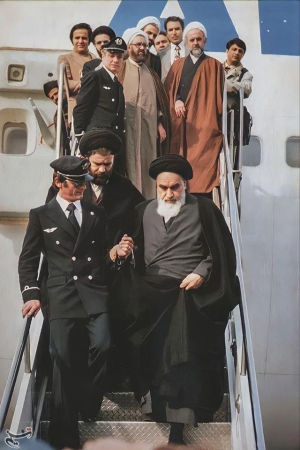Iran's attack on Israel was so huge, it managed to kill a solitary man and that too an Arab Muslim.
Iran has launched a missile attack against Israel in retaliation for the killing of militant leaders allied to Tehran.

www.bbc.com
Iran launched almost 200 ballistic missiles towards Israel on Tuesday night.
The Israeli military said most of the missiles were intercepted, but that a small number struck central and southern Israel. The only person reported to have been killed was a Palestinian man in the occupied West Bank.
It was Iran’s second such attack on Israel this year, after it launched about 300 missiles and drones in April.
Here's what we know so far.
What was the scale of Iran's attack?
The Israel Defense Forces (IDF) said the attack involved more than 180 missiles, which tallied with Iranian state media reports saying that about 200 missiles were launched.
The US said the attack was “nearly twice the scope” of what happened in April.
Sirens sounded as Israel’s entire 10 million population was told to head into bomb shelters at about 19:30 local time (16:30 GMT) on Tuesday.
Social media videos verified by the BBC showed missiles flying over the densely populated cities of Tel Aviv and Jerusalem less than 15 minutes later. Explosions could be heard overhead as air defences intercepted the incoming missiles.
The footage also showed several missiles hitting areas around the Nevatim airbase in the Negev desert and the headquarters of the Mossad spy agency near Tel Aviv.
“There were a small number of hits in the centre of Israel, and other hits in southern Israel,” said IDF spokesman Rear Adm Daniel Hagari. “The majority of the incoming missiles were intercepted by Israel and a defensive coalition led by the United States.”
The Israeli military confirmed on Wednesday some of its air bases had been hit during the attack, but said no weapons, aircraft or critical infrastructure was damaged and the air force's operational abilities were not affected.
Iranian state media cited the Islamic Revolution Guard Corps (IRGC) as saying the missiles hit Nevatim, Hatzerim and Tel Nof airbases, as well as Israeli tanks in Netzarim - a reference to an Israeli military corridor in central Gaza - and gas installations in the southern city of Ashkelon.
The semi-official Tasnim news agency said Iran had for the first time used Fattah hypersonic missiles that it claimed "cannot be intercepted", as well as Emad and Qadr ballistic missiles. However, the IDF said the barrage did not include any hypersonic missiles, according to Israeli media.
What damage and casualties have been reported?
On Wednesday, the IDF said several air force bases were damaged in the missile attack, but that no aircraft were damaged, according to Israeli media reports.
“Only administrative buildings and peripheral components were hit,” the IDF was quoted as saying, while adding that “upcoming missions remain unaffected".
The IDF also reportedly said that damage to infrastructure and property in civilian areas was “only minor” and was likely to have been caused by shrapnel from intercepted missiles.
Just north of Tel Aviv on Wednesday, close to the Mossad’s headquarters, a BBC correspondent found several badly damaged cars and a pile of earth next to a road where a missile impact was said to have caused a crater between 8m and 10m deep.
The nearby municipality of Hod HaSharon also said about 100 houses were damaged by a missile explosion and shrapnel. "This was a very powerful impact with a huge risk of claiming human lives," the municipality said.
And a video released by the IDF showed the head of its Home Front Command visiting a school that was hit by a missile in the Gedera area, just to the east of Ashkelon, causing extensive damage to a classroom.
Israel’s Magen David Adom ambulance service paramedics treated two people with light injuries from shrapnel in the Tel Aviv area, as well as some people with minor injuries caused by falling as they moved to shelters.
However, the Palestinian Civil Defence authority said a Palestinian man was killed when he was hit by a falling missile fragment in the West Bank city of Jericho.
CCTV footage showed the rear half of a large, black missile plummeting directly on to a man as he walks along a road at night. It was not clear if the missile had been intercepted.
The New York Times identified him as Sameh al-Asali, a 37-year-old Palestinian construction worker from Gaza who had been sheltering in Jericho since the start of the war between Israel and Hamas last October.













